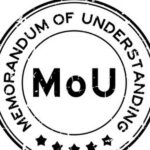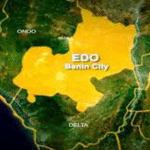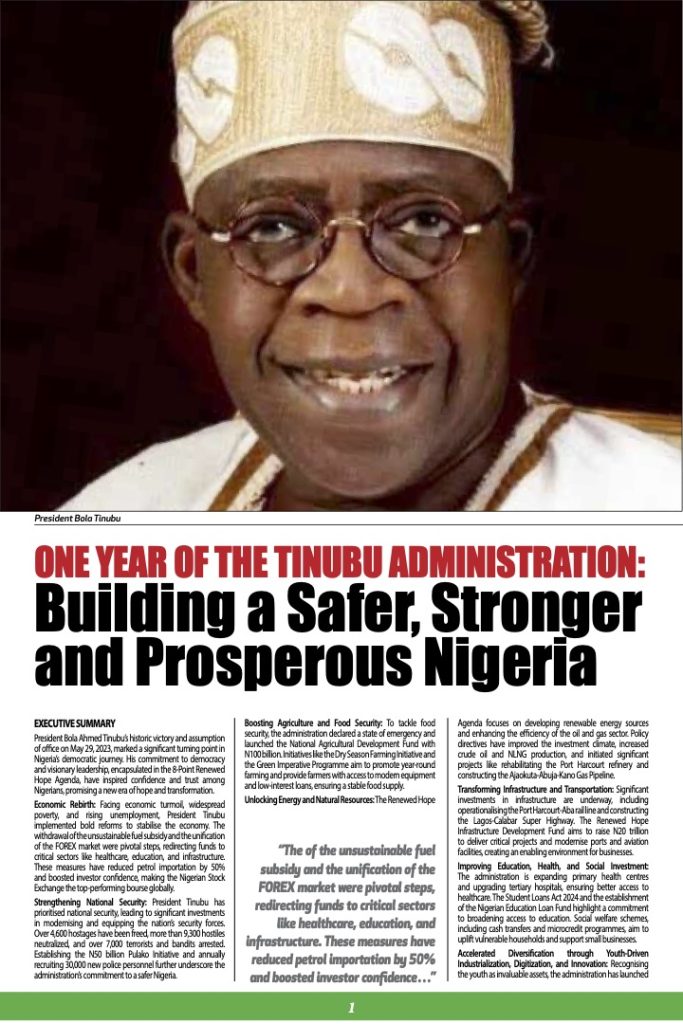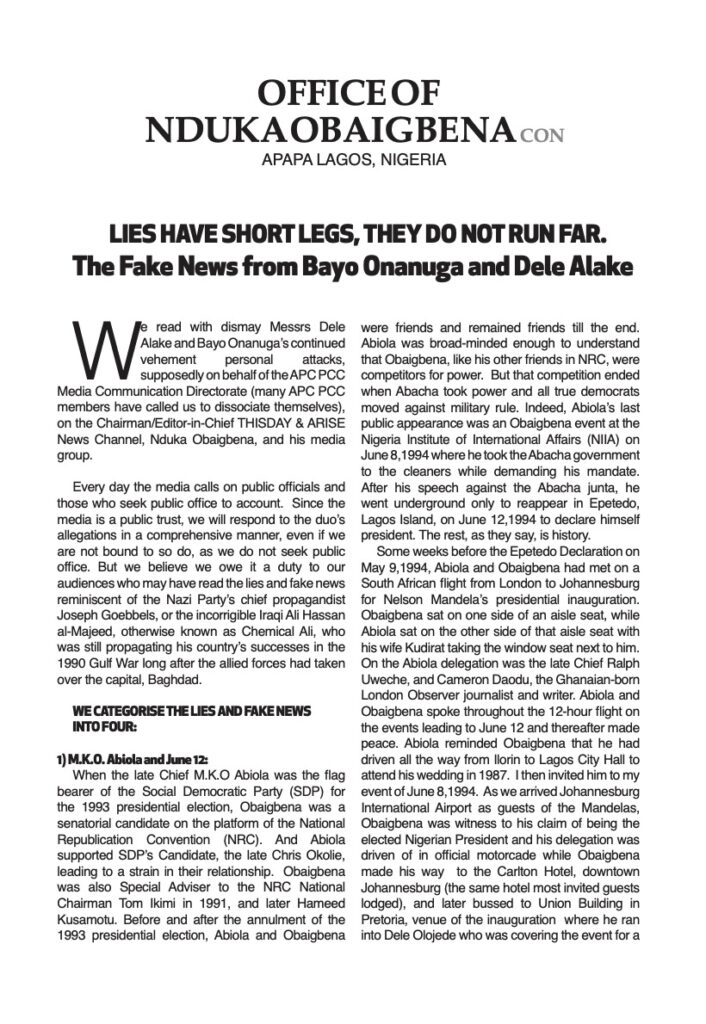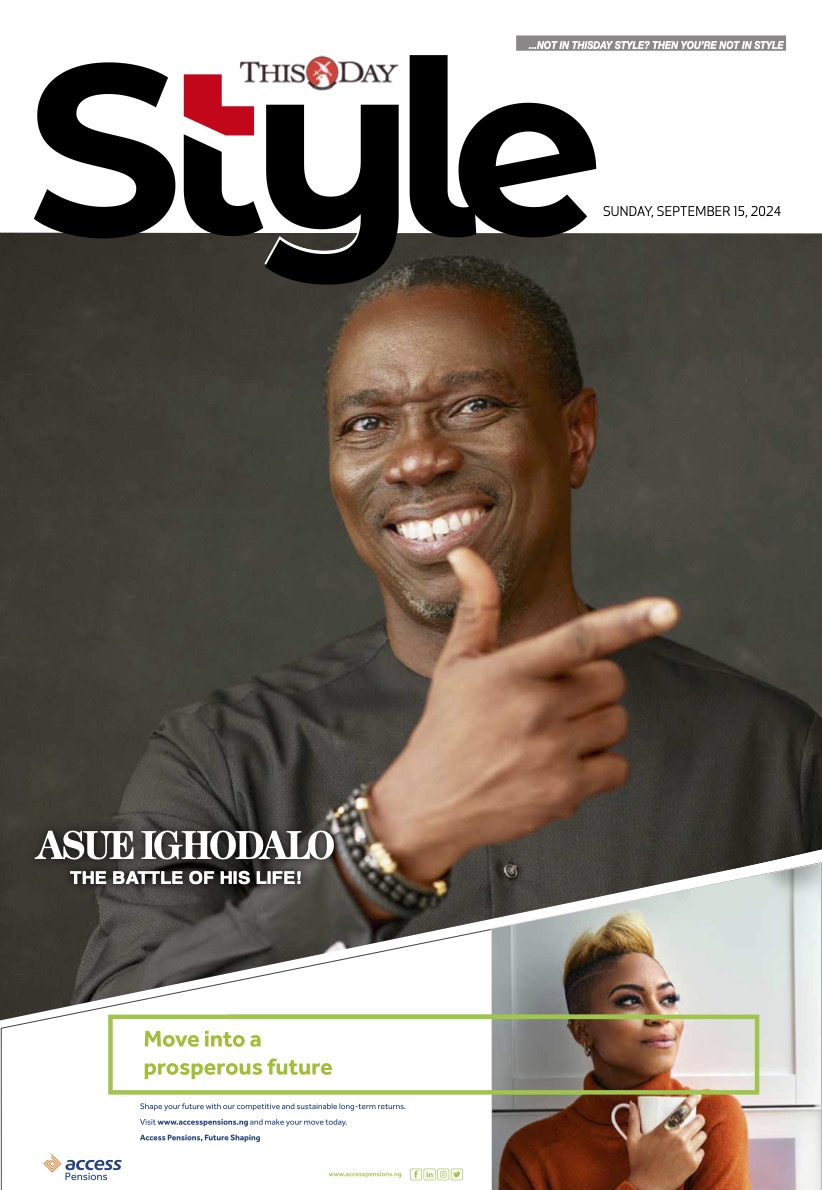Latest Headlines
Doyin Salami’s Elitism Versus Muhammadu Buhari’s Populism

It is re-assuring to know that the monetary and political authorities are unanimous that further devaluation of the naira is not in the interest of Nigeria given the vulnerabilities of our economy. The Central Bank Governor, Mr. Godwin Eme ele’s stance against an indeterminate unmanageable devaluation has been unmistakably clear and well argued: the country is too dependent on imports and lacks the productive base to bene t from devaluation. More heartwarmingly, the joint statement issued in response to the JP Morgan announcement excluding Nigeria from its bond index shows that the Ministry of Finance and the Debt Management Of ce are rmly in agreement with the policies of the Central Bank and her top Management.
To cap it, President Buhari, couple of days back in France publicly gave his support to the Central bank policies when he stated categorically “I don’t think it is healthy for us to get the naira devalued”. With this, it is clear that ‘No more Devaluation’ is the publicly stated of cial position of President Buhari and the Federal Government, a position that most nancial experts and analysts support.
I was therefore quite surprised when I read the contrary position expressed by Doyin Salami while delivering his key note address at the Standard Bank West Africa investors’ conference, tagged: ‘Nigeria: From Promise to Progress’. Speaking at the event, Salami is quoted to have said that “I am pretty clear in my mind that I will rather Nigeria maintain independent monetary policy because that gives us the capacity to react to domestic exigencies and a market determined exchange rate. I will rather that the price of currency is determined by demand and supply rather than any administrative determination”.
What this statement implies is that if Doyin Salami were in a position of authority, he would rather the country allows a full and devastating devaluation of the naira, regardless of its effect on in ation, wages, interest rates, and growth. One thing that is baf ing is that this is a position that runs contrary not only to those of a majority of his colleagues at the CBN’s Monetary Policy Committee, but also to that of President Buhari, a man he is scheming very hard to reward him with a Ministerial appointment, having served on the Transition Committee. His preference for a so-called exible exchange rate means that he expects the Central Bank to remove all controls that are by the way only meant to curb speculative attacks and the ow of illicit funds through Nigeria’s banking system. That he prefers that the price of the naira should be determined strictly by the forces of demand and supply shows that Doyin Salami is clearly in support of the attempts by JP Morgan to pressure the country into allowing the free fall of the naira. Expectedly, he has become the ‘credible’ voice of local opposition against the federal government’s position to the extent that hostile foreign media like Bloomberg in their negative commentaries against Nigeria cites him copiously. What Salami fails to know is that the analysis of the foreign media are almost always lacking in objectivity and in this instance sponsored by global cartels of currency speculators and manipulators looking to make a pro t from our crisis.
That anyone who calls himself an economist in the mold of Doyin Salami would support a move that will surely lead to mass suffering, poverty, unemployment, loss of jobs, hike in in ation rate and position Nigeria for a quick recession is very unfortunate.
His very anti-people and anti-Buhari stance further lends credence to the fact that this elitist “Lagos—Abuja” economist is far removed from the economic realities of Nigeria and is grossly insensitive to the misery that will become the lot of most less-privileged Nigerians. With such callous and insensitive analytical conclusions, Doyin Salami has absolutely no role to play in a pro-people government that is being led by the grass roots oriented President Muhammadu Buhari. Such a posture sells him out as someone who lacks the social intelligence to initiate or make key inputs into policies that will promote the well-being of ordinary Nigerians.
For those who do not know Doyin Salami, a little introduction would suffice for a better understanding of the contradictions which he exemplifies. Doyin Salami holds a PhD from Queen Mary College, University of London, is a member of the Monetary Policy Committee of the Central Bank and served as the Vice Chairman of the 18 member APC Transition Committee. He is also been touted for appointment as a member of the President’s economic management team. Currently, he is a senior lecturer at Lagos Business School (LBS).
As someone who has been in around top government circles for some time now and possible involvement in the new government his contrary positions on such key matters are a cause of concern. Clearly his economic philosophy cannot be said to be in tandem with that of President Buhari, especially on such a critical pervasive issue like the exchange rate.
He was one of the most vocal voices that opposed and criticized the decision of the MPC Committee to authorize the ban on forex for the importation of forty items that can be produced locally like toothpicks, tomato, rice, poultry, palm oil etc so as to curtail the depletion of foreign reserves and promote local production of the goods. His reaction, which questioned his sense of loyalty, was that “The credibility that CBN has carefully cultivated, if not lost, is most certainly undermined”.
It is rather strange that Salami chose to oppose an MPC policy meant to stimulate growth, rati ed by majority of the MPC members and fully supported by President Buhari. Speaking recently in France, President Buhari said that “things like toothpicks and rice, Nigeria can produce enough of those. We don’t need to give our hard currency on that, but those who insist on having toothpick from Europe or from China, instead of using Nigerian toothpick, they can go and source their foreign exchange”. The varying attitudes towards such major policy actions show clearly that the elitist economic philosophy of Doyin Salami cannot t into the grass roots economic inclination of the President.
Salami’s argument that the Central Bank must choose two of the three options before it is also somewhat disingenuous. As he accurately stated, no central bank can simultaneously achieve a xed exchange rate, independent monetary policy, and capital mobility. But what he conveniently fails to point out is that the CBN is not pursuing these three goals at the same time. For one, the CBN is not practicing a xed exchange rate system. Rather, in line with its mandate to pursue a stable exchange rate, the bank’s MPC has long adopted a managed oating system, a system that has underpinned the stability of exchange rate since for the last 7 months. As a member of the MPC it behooves on Salami to always accept the decision arrived at by majority of the members of the Committee. I would expect that at least once the argument ends in the room, no one outside deserves to know the full extent of the disagreement.
His simplistic analysis of the options available to the Central Bank also shows that he does not really understand the very delicate, cliff hanger situation that the country is facing at the moment. Any wrong or ill advised move by the monetary authorities will have the country tilt over the cliff into recession, a situation that would spell disaster for millions of Nigerians, while currency speculators would make a kill from the fall in the value of naira. – Ogbole is a public policy
